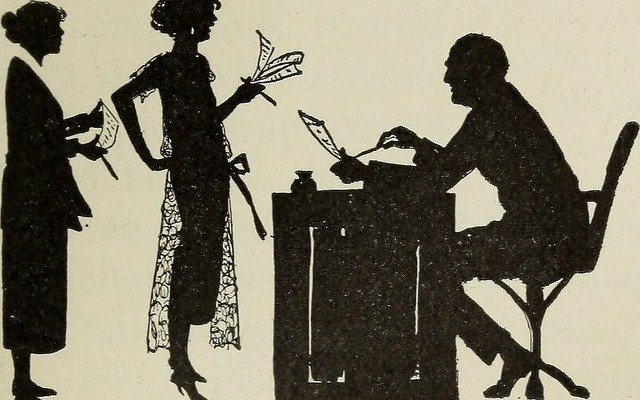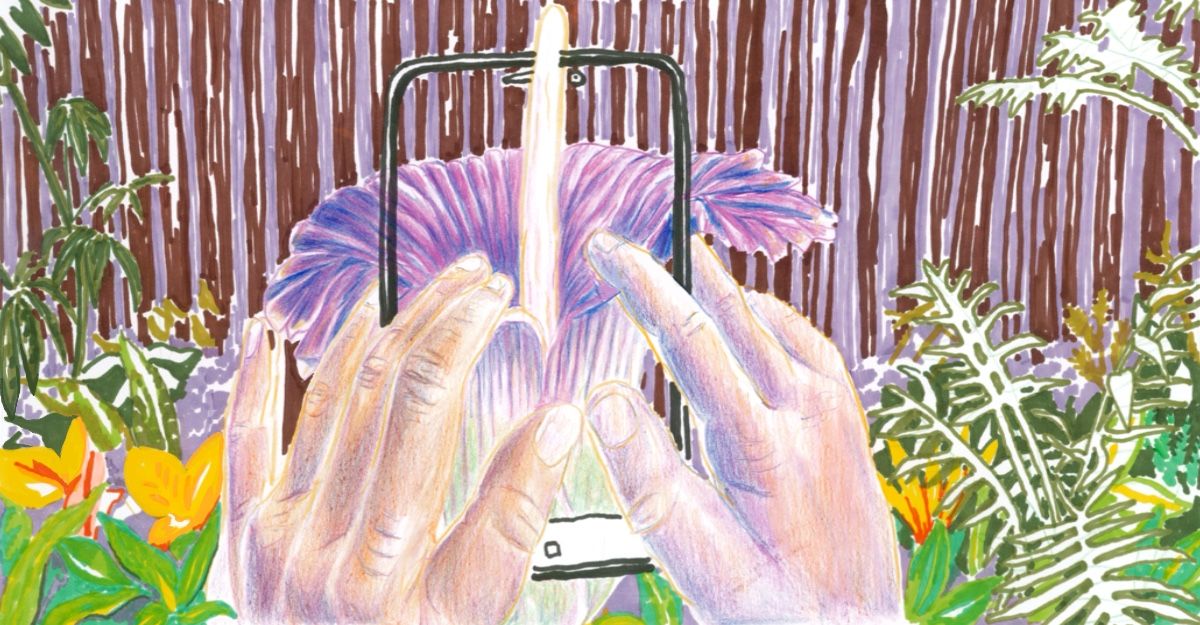Women, your self-deprecating missives are in the firing line. A new chrome app called Just Not Sorry underlines words and phrases, such as ‘I’m no expert’, ‘I think’, ‘just’ and ‘sorry’. The aim is to encourage us to purge such equivocations from our emails, thereby projecting confidence rather than uncertainty. The app’s creator, Tami Reiss, explains that she is ‘really trying not to make this a gender issue’ but her creation is squarely aimed at ‘entrepreneurial women’.
The app has received some criticism for ‘policing’ women’s speech, although other critiques could be made. For mine, knowing your limitations is an asset rather than a setback, and accordingly the words ‘I’m no expert’ could stand to be used more often. In addition, the phrases singled out above seem to be a way of putting a recipient at their ease; hardly the worst sin to commit in an email.
I’m being rather harsh here – there is nothing intrinsically wrong with learning to be less apologetic. (Certainly it’s a lesson I could probably do with: my pitches often contain ‘just’, ‘I think’, and in some instances even ‘no worries if you’re not interested’.)
It’s notable, though, that Just Not Sorry sits comfortably alongside a stream of books and articles that have appeared in recent years urging women to change our behaviour in a particular way in order to succeed both in the workplace and beyond. Apparently we need to learn to interrupt, to establish dominance in a conversation, to be confident and assertive, to stop apologising, and to stop worrying about being liked. Writing of Amy Poehler’s book Yes Please, Jessica Valenti argues: ‘[m]odesty and niceness are overrated’.
Discussing the boundaries of particular ideologies in his book After Theory, Terry Eagleton writes that feminism is ‘a fairly loose collection of beliefs, but however loose it is it cannot include worshipping men as a superior species’. Quite. However, while no-one is counselling us to worship men, there is no end of advice about how to adopt their stereotypical attributes. (To state the obvious, men do not automatically possess these traits: the existence of shy, introverted, gentle blokes who are alienated by the individualism and competitiveness of the modern workplace tends to be overlooked in the Stop Being So Damn Nice, Ladies injunctions discussed above).
The suggestions appear to boil down to this: we must focus single-mindedly on our goals and aspirations, eschew humility and, in the cutesy internet phrase, give zero fucks.
It would be idle to pretend that this is not sound advice in a world largely run by and for arrogant jerks. Further, as sick as one might be of unlovely and fatally overused portmanteau buzzwords like ‘mansplain’ and ‘manterrupt’ (not to mention ‘mancession’, ‘manspread’, ‘manarchism’ and ‘brocialism’), they can address an observable reality. In addition, there is more than gender at play here: not all women will be equally affected by a lack of confidence, and assertiveness may be particularly valuable to women from marginalised backgrounds.
But the Fortress Self-Esteem approach is beset by obvious flaws.
First, it focuses on the personal rather than the structural, placing a heavy onus on individual women to create change. Second, there is ample evidence that women who are confident and assertive are judged more harshly than their male counterparts in any event. To return briefly to the Just Not Sorry app, the issue is not so much what women write, but how the reader interprets it: studies have shown that test participants will rate an essay (or even a physics test) more highly if it is said to be written by a man, and when female economists co-author papers with male colleagues, it is the latter who receive the lion’s share of the credit. What can individual expressions of confidence do in the face of widespread bias – both conscious and unconscious?
There is also a third problem, which relates to the venerable clash between feminism as equality and as liberation. Dutifully reading the kind of advice being dished out above, a woman who gives quite a few fucks, including as to the feelings of others, may well wonder why she should be forced to change herself to fit into this dog-eat-dog world. Is there really no alternative to adopting approaches that further marginalise the shy, the self-deprecating and the kind? In full awareness of how naive this sounds: couldn’t men and women in positions of power be expected to be, well, nicer? It’s arguably a bit of a stretch to view the world as being plagued by an excess of humility and self-effacement, and rather perverse to view these as problems, rather than admirable qualities to be encouraged.
This is not a new argument, but it’s one that cuts against popular feminism’s rhetoric of empowerment. In an excellent 2014 piece on the wave of ‘books that teach women to be overconfident blowhards’, Amanda Hess wrote: ‘A few years ago, in the wake of the financial crisis, the think piece du jour centered on how overconfident men were a danger…Now, women are being told to ape these poisonous personality quirks for feminist life lessons.’
It’s important to guard against essentialism here: to assert that men and women often differ is not to conclude that these differences are rooted in biology. It is, as Rosalind Barnett and Caryl Rivers note, a ‘fiction that women are always more caring, more democratic, better at communication and more moral than men’. We are shaped by our experiences, though, which are themselves created by our economic system. In countless lines of work, women are more likely to be underlings than overlings, to be talked over than listened to.
This is not a desirable state of affairs, but it bestows a valuable perspective. If – regardless of your sex – you spend large parts of your life being bloviated at by the overconfident, not only are you likely to develop an excellent poker face, but to gain insights about the world that will forever be denied the bloviators. A life spent among those excessively well-endowed with self-esteem can help nurture scepticism and a critical approach in lieu of an unshakeable certainty. Imposter syndrome is indeed awful, but a healthy degree of self-doubt is (arguably) an underrated intellectual asset.
The valorisation of assertiveness has deep political implications – and some shallower ones. Do we really want a world that is even more full of unapologetic people with bulletproof self-esteem and a sunny disregard for the esteem of others? Frankly, such a prospect sounds like utter hell; akin to an endless party full of high achieving, high-fiving law students competing as to who has received the most employment offers from top-tier firms. Pity the person who’s stuck serving the drinks.
These are cautious opinions, ambivalently held; as long as the patriarchy exists we will need tools to navigate it. One can’t simply wish competitive realpolitik out of existence, and accordingly many of us would benefit from learning to be more assertive. What bliss, though, if we didn’t have to.






